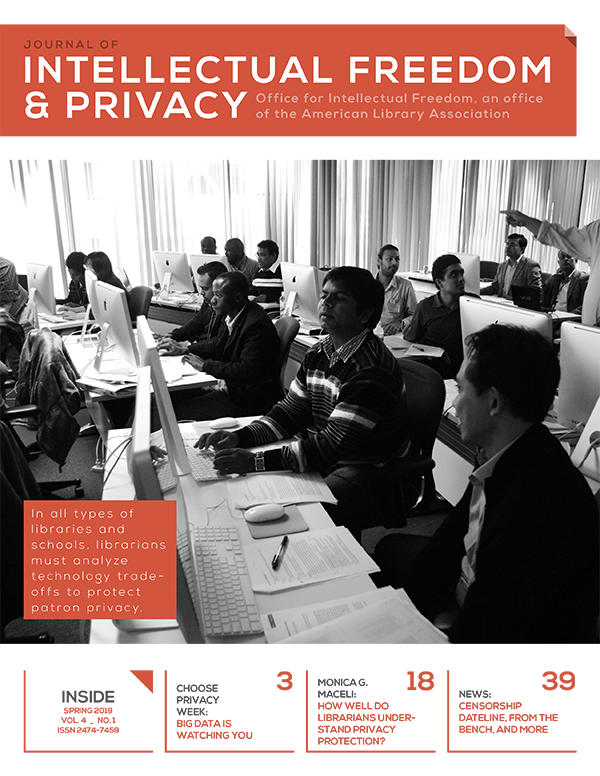In this issue of JIFP, we include several commentaries from Choose Privacy Week 2018 and a feature article by Monica Maceli that addresses librarians’ conceptualizations of the internet and privacy-protecting technologies. As these writings make clear, privacy is a central concern of librarianship—it is part of our code of ethics, our core values, and is now incorporated in the Library Bill of Rights.
In addition to the standard concerns about patron privacy, such as circulation records and computer usage logs, librarians now must consider third-party vendors and services, companies that track users across different platforms and websites, and the aggregation of vast amounts of user data.
Many patrons rely on the library for access to computers, but is that access compromised through a lack of privacy? It can be difficult to discern this, particularly when librarians themselves may not fully understand what is happening to data or how it can be protected (as Maceli illustrates). Nonetheless, precisely because patrons do rely on us as trusted intermediaries and experts, librarians must develop and hone privacy-protecting skills. We need to become familiar and practiced with privacy-protecting technologies and resources, then implement them in our libraries, as much as possible.

